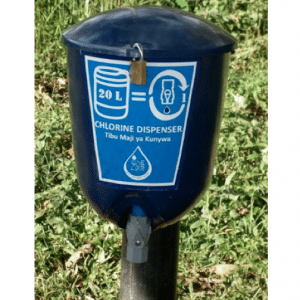
Agriculture
September 23, 2023
Dispensers for Safe Water
Read SolutionImplemented by
Innovations for Poverty Action
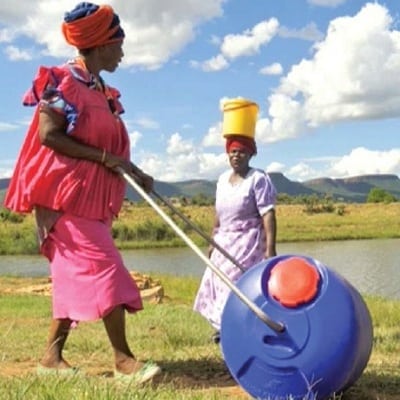
Updated on June 22, 2024
·Created on August 27, 2015
The goal of the Hippo Water Roller is to make it easier to transport water over long distances in rural areas.
The Hippo Roller is a device used to transport up to 90 litres of water by rolling a barrel shaped container along the ground. Primarily deployed in rural Africa, it is designed to collect approximately 5 times more water than a traditional bucket and to withstand being transported across rough surfaces found in rural areas.
Target SDGs
SDG 3: Good Health and Well-Being
SDG 6: Clean Water and Sanitation
Market Suggested Retail Price
$125.00
Target Users (Target Impact Group)
Household
Distributors / Implementing Organizations
Partners with Hippo Roller establish local distribution points where the roller is required. The product can also be purchased directly from the manufacturer.
Competitive Landscape
Direct competitors include Wello WaterWheel and Q Drum.
Regions
Africa
Manufacturing/Building Method
The business outsources its primary manufacturing in South Africa and has a local manufacturing strategy for other countries to avoid high shipping costs and achieve a lower landed cost.
Intellectural Property Type
Trademark
User Provision Model
The manufacturer links with NGOs to enhance their reach and identify rural communities and households most in need of the Hippo Water Roller. The manufacturer invites retailers to work with them to offer micro-finance to customers who have difficulty affording the upfront cost of the product.
Distributions to Date Status
As of 2020, approximately 55,000 Hippo Rollers have been distributed globally.
Container Volume (Liters)
90 L
Handle for pouring (yes/no)
No
Transport Method
Push
Design Specifications
The Hippo Water Roller is a barrel-shaped container designed to transport up to 90 L of water over long distances. The drum, made from UV stabilized linear low-density polyethylene (LDPE), is designed to distribute the weight of the water over a wide rolling surface, meaning the effective weight when pushing a full 90 L drum is 10 kg. The clip-on steel handle provides control while rolling the Hippo Roller over difficult terrain. The cap-in-cap design helps to prevent contamination of the water and the drum’s wide opening (135 mm diameter) aids in filling, pouring and cleaning.
Technical Support
Customer support available via the Hippo Roller website, email or phone.
Replacement Components
The mini-cap is a standard soda bottle top for easy replacement if damaged.
Lifecycle
~5 to 7 years
The plastic drum and caps are recyclable, however, they are often re-purposed as storage bins, plant pots, small baths and feeding/water troughs in communities when they can no longer be used for water collection.
Manufacturer Specified Performance Parameters
To create savings in time, energy and improve health for those transporting water. To unlock time for education and empower rural farmers to develop.
Vetted Performance Status
An impact assessment performed by South Africa's Department of Rural Development and Land Reform determined that users selected for Hippo Roller trials benefited from a reduction in time spent collecting water, a reduction in incidents of back pain and hand blisters and an increase in water availability. The report suggests that overall living conditions were improved as users had more time available for productive educational and economic activities and more water available for irrigating crops.
Safety
Drum material (LDPE) is considered a low hazard plastic.
No other listed hazards.
Complementary Technical Systems
Water purification options can be added to filter the water.
Academic Research and References
Noll, R., et al., 1999, Reforming Urban Water Systems in Developing Countries. Economic Policy Reform: The Second Stage.
Our Partners • Hippo Roller. n.d. Hippo Roller.
Hanlon, Mike. 2006. The Hippo Roller – Ingenious Water Roller. New Atlas, December 19, 2006.
Contact Us > Hippo Roller. n.d. Hippo Roller.
Gibbs, Grant. 2015. The Hippo Water Roller Project: Helping Communities Improve Access to Water 90 Litres at a Time (24 Gallons). Hipporoller.org. South Africa: Hippo Roller.
Department of Agriculture, Land Reform and Rural Development (South Africa). 2012. Hippo Water Roller Impact Assessment Report – 8 Selected Sites (EC). Hipporoller.org. South Africa: Department of Agriculture, Land Reform and Rural Development (South Africa).
Department of Agriculture, Land Reform and Rural Development. n.d. www.dalrrd.gov.za.
Compliance with regulations
None
Evaluation methods
The manufacturer has conducted tests over the last 25 years to assess the effectiveness and durability of the drum. The product has been evaluated for community impact by South Africa’s Department of Rural Development and Land Reform.
Other Information
Video about how the Hippo Roller is made and why.

Agriculture
September 23, 2023
Implemented by
Innovations for Poverty Action
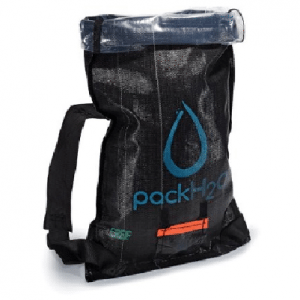
Agriculture
August 4, 2024
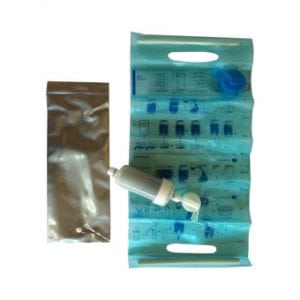
Agriculture
December 29, 2023
Implemented by
RealRelief
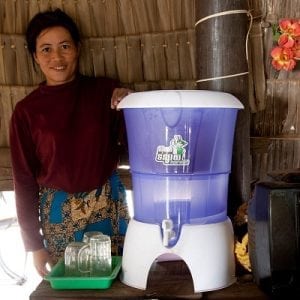
Agriculture
January 4, 2024
Implemented by
iDE
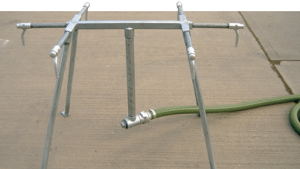
Agriculture
January 10, 2024
Implemented by
Evenproducts
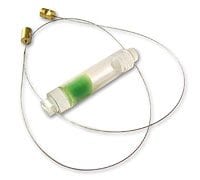
Agriculture
January 3, 2024
Implemented by
Fred Barrett and Dale Andreatta
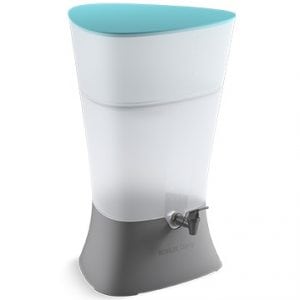
Agriculture
January 11, 2024
Implemented by
Kohler
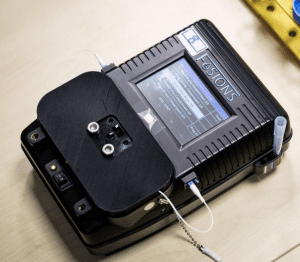
Agriculture
January 24, 2024
Implemented by
Nanyang Technological University (NTU) Singapore
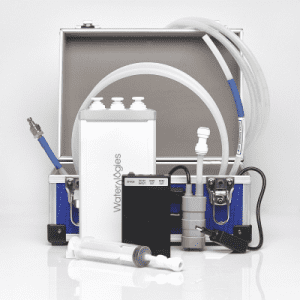
Agriculture
January 25, 2024
Implemented by
Waterologies
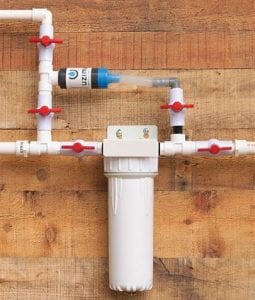
Agriculture
January 2, 2024
Implemented by
Uzima
Have thoughts on how we can improve?
Give Us Feedback
This is a method of particulate removal from stored water. This I assume also needs a clean water treatment container (hopefully sealed). Can this filter be used untreated and treated water containers. Filtration capacity is 12 litres over what period of time? Can we take two Water Hippo rollers (water fetching device) containing untreated water and have it flow through the filter into another empty, water hippo roller tank. Capacity of both tanks is 24 gallons. If we want to sterilize water using chlorine tablets or bleech do we add them to untreated tank or the treated tank.